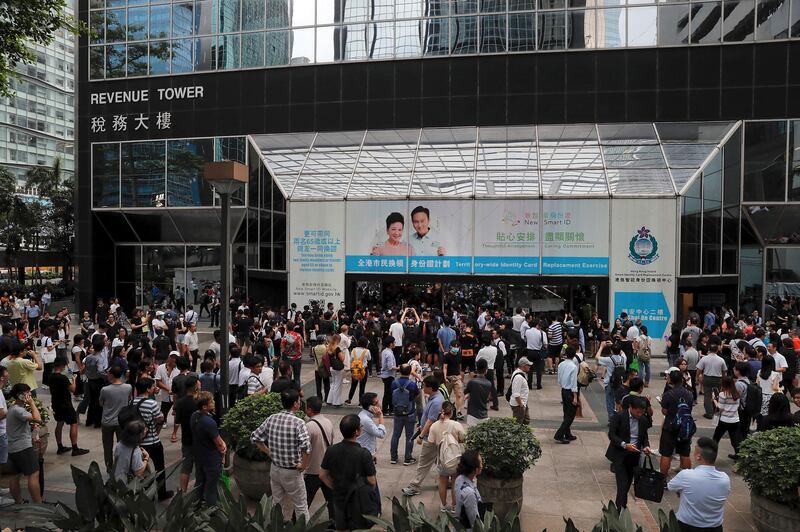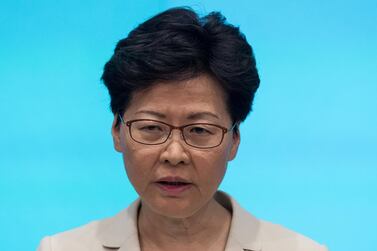China said on Monday it would not allow discussion of Hong Kong at the G20 summit this week even as US President Donald Trump planned to raise the city’s mass protests during his meeting with President Xi Jinping.
The semi-autonomous city has been shaken by huge demonstrations this month with protesters demanding the withdrawal of a bill that would allow extraditions to the Chinese mainland.
Mr Trump has weighed in on Hong Kong’s worst political unrest since its handover from Britain to China in 1997, saying he understood the reason for the protests and hoped demonstrators could “work it out with China”.
US Secretary of State Mike Pompeo later said Mr Trump would discuss Hong Kong with Mr Xi at the Group of 20 summit, which will take place in Osaka, Japan, on Friday and Saturday.
But Chinese assistant foreign minister Zhang Jun said the G20 was a forum for focusing on global economic issues.
Mr Xi and Mr Trump have agreed to hold bilateral talks during the summit concentrating on the US-China trade war.
“I can tell you with certainty that the G20 will not discuss the Hong Kong issue and we will not allow the G20 to discuss the Hong Kong issue,” Mr Zhang said at a press briefing previewing Xi’s attendance at the summit.
“Hong Kong affairs are purely China’s internal affairs and no foreign country has the right to intervene,” he said, noting that the city was a special administrative region of China.
The international finance hub has been rocked by its worst political unrest in almost half a century.
Millions marched this month to oppose the hugely unpopular extradition law, which has since been postponed in the face of the huge public backlash. Police also used tear gas and fired rubber bullets to disperse demonstrators.
The demonstrations have since morphed into a wider movement against city leader Carrie Lam and Beijing.
Protest groups in Hong Kong on Monday announced plans to hold a new rally on Wednesday evening, directly aimed at the G20 leaders who will begin arriving in Japan the following day.
“In holding this rally, we are facing the world, posing several questions to the leaders of 20 countries: Do Hong Kongers deserve democracy? Should Hong Kongers have democracy? Can Hong Kongers implement our democratic system yet?” said Jimmy Sham from the Civil Human Rights Front, which organised the recent mass protests.
On China’s refusal to address the Hong Kong protests at the G20, Mr Sham responded: “If you think that you do not need to explain what happens in your country to the world because they are internal affairs, then China, you should withdraw from the United Nations.”
Protest leaders plan to hold another huge rally on July 1 but student-led groups – communicating through encrypted messaging apps – have also begun embracing spontaneous, fast-moving acts of civil disobedience.
They blockaded the city’s police headquarters for 15 hours on Friday, and they have also targeted government ministries.
On Monday afternoon, about 100 protesters blocked the entrance to a tower block containing the city’s tax department, turning away employees and members of the public.






